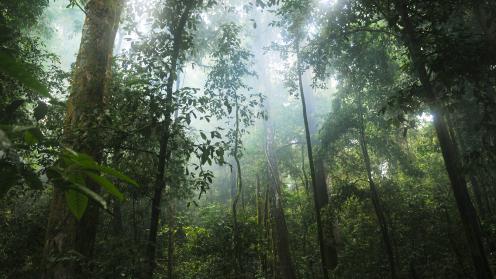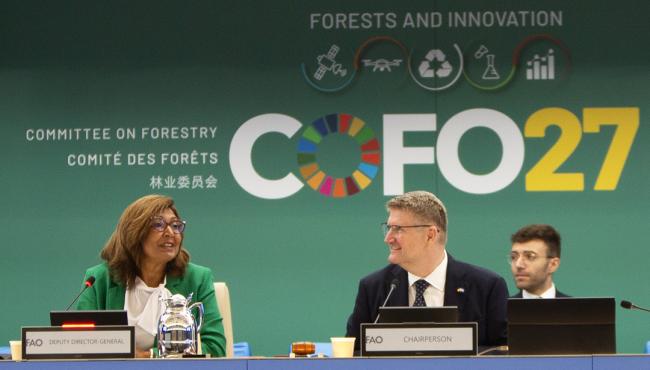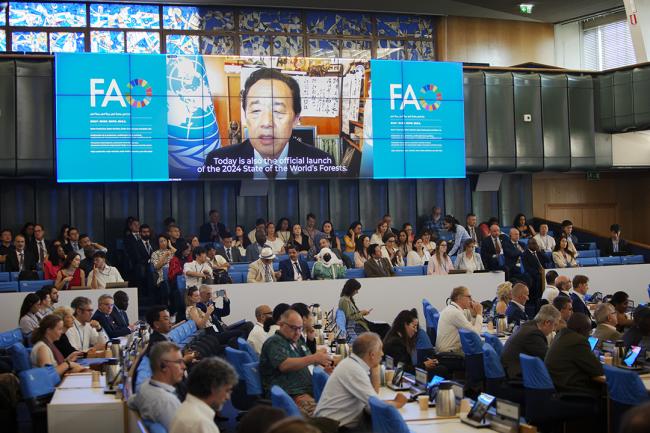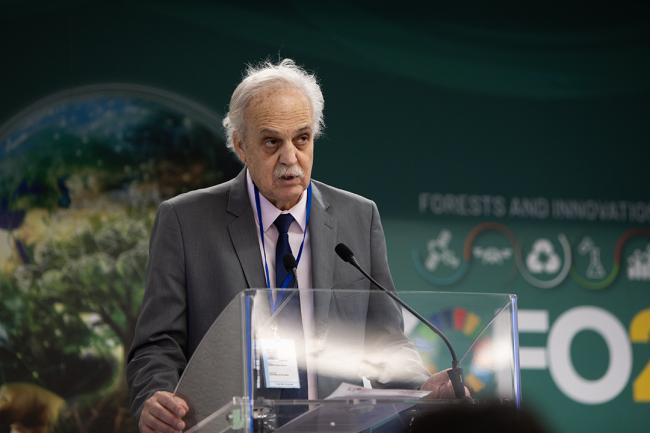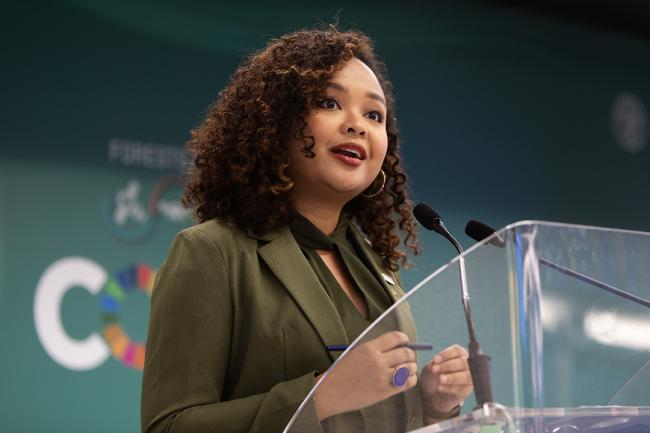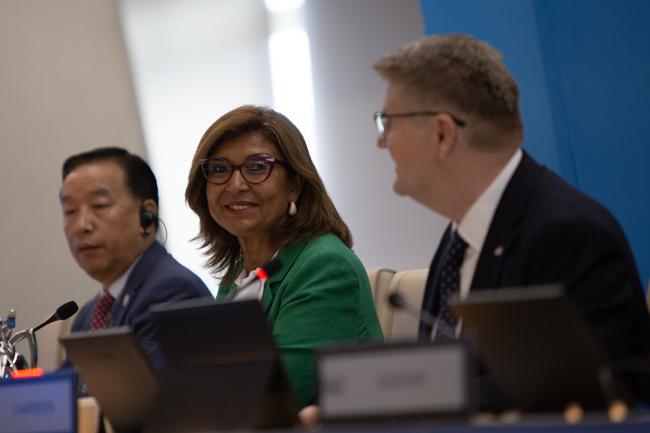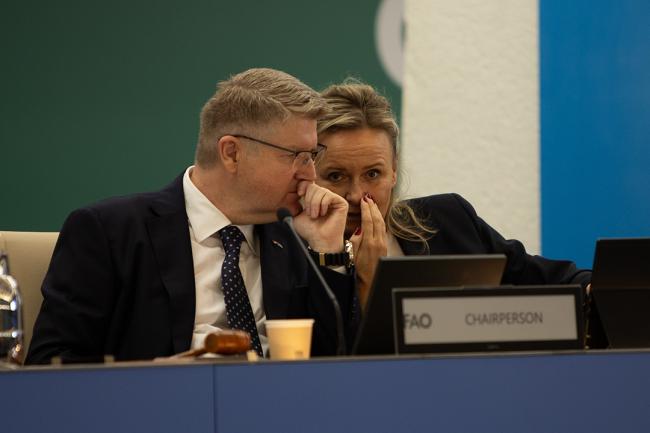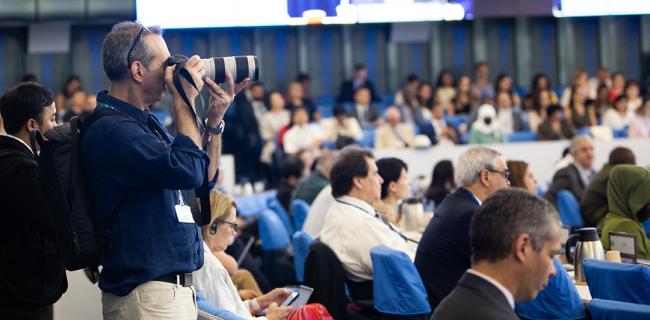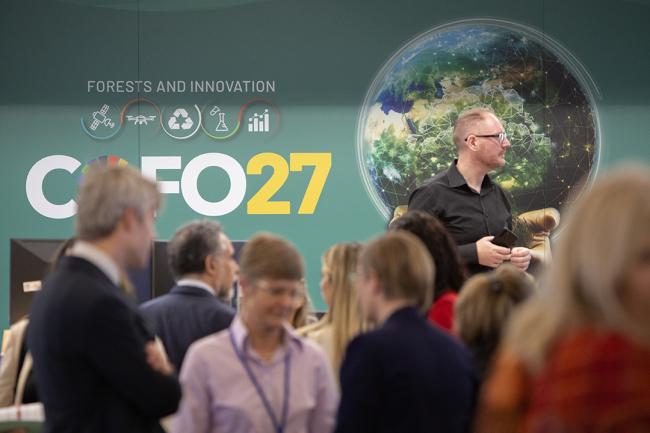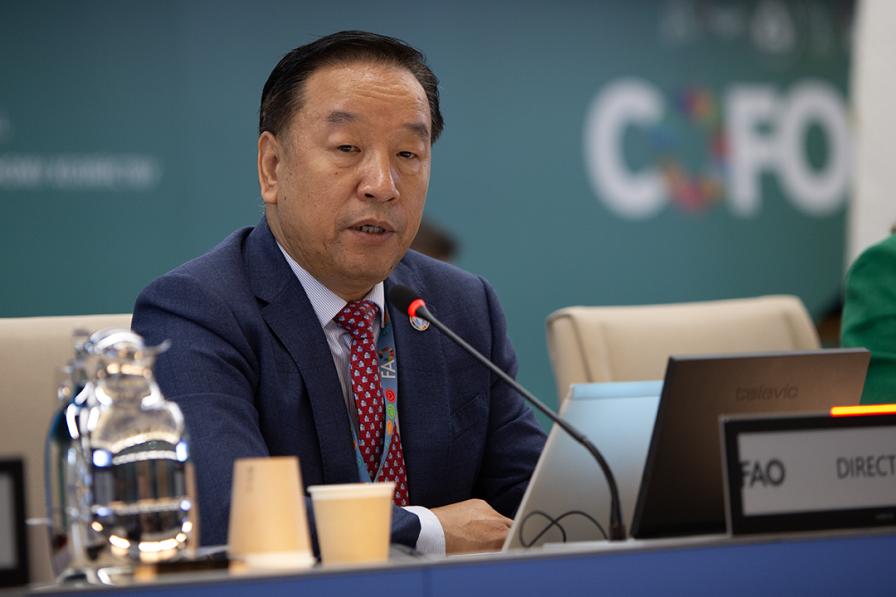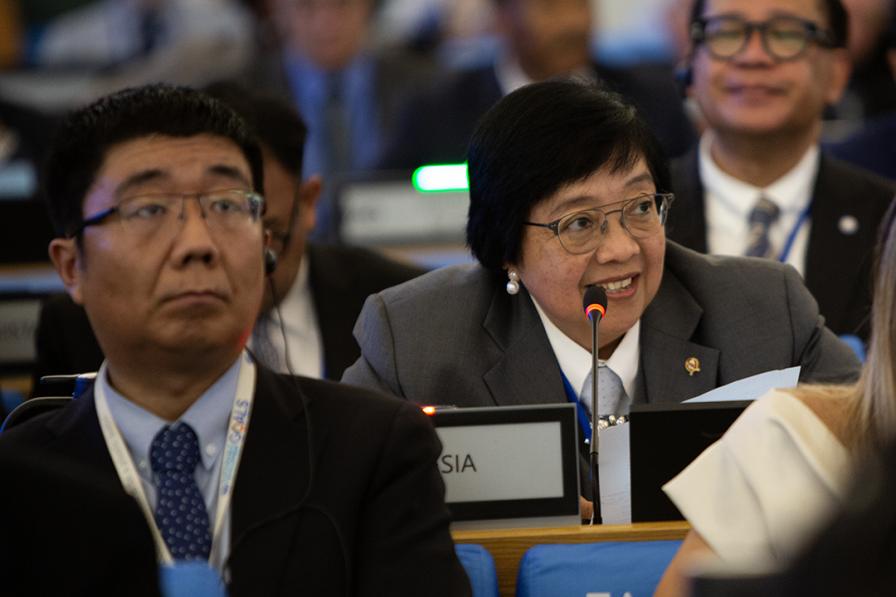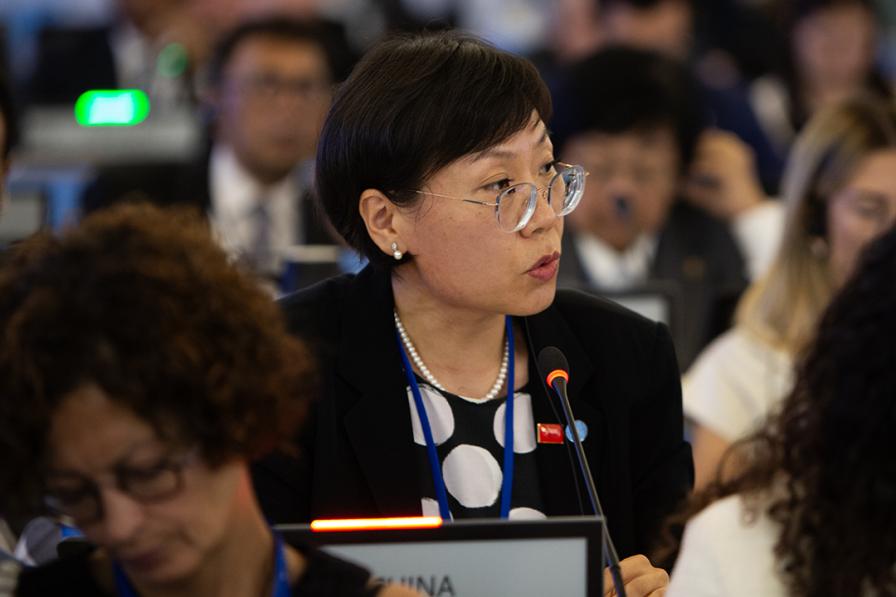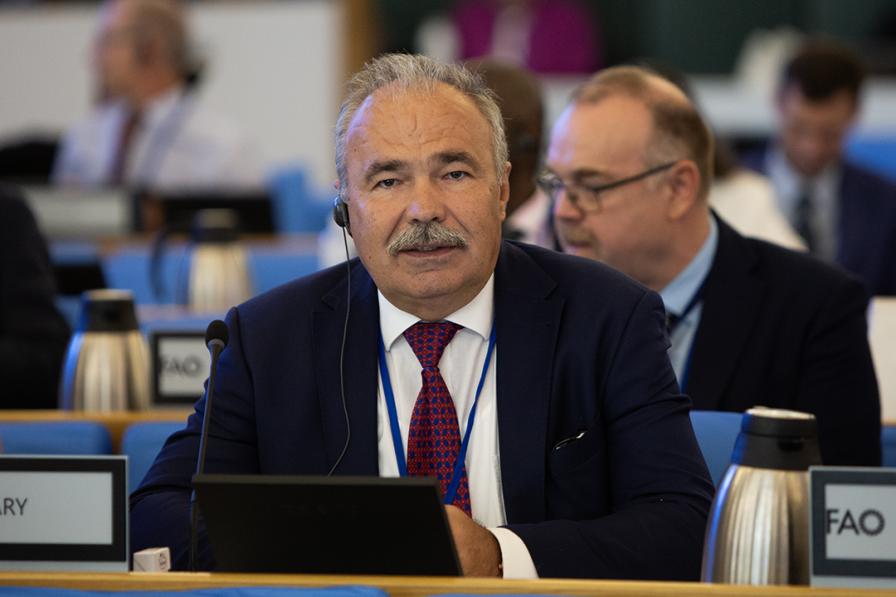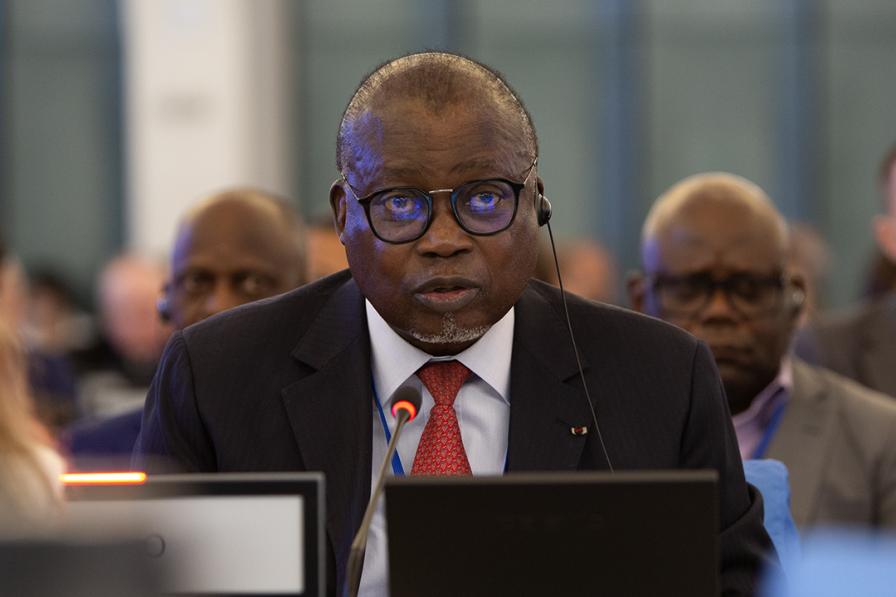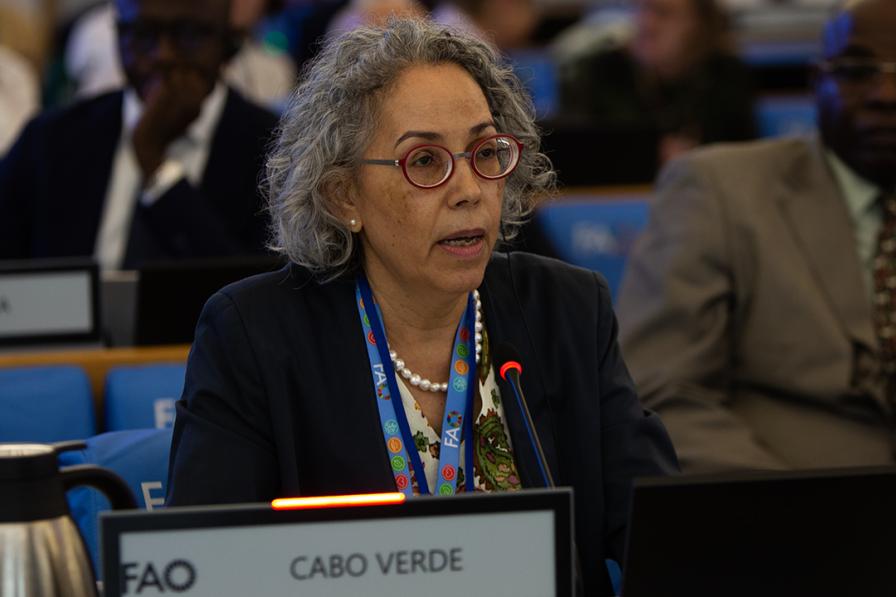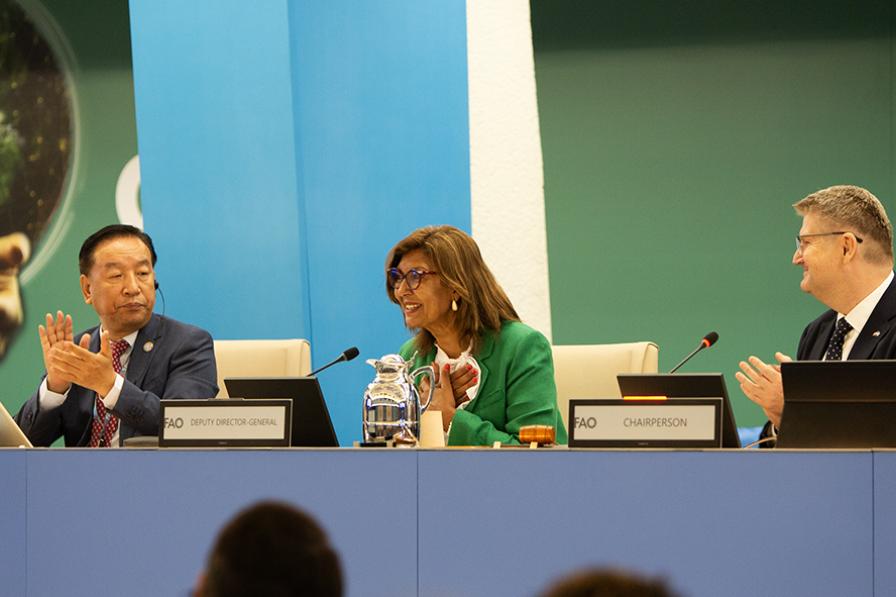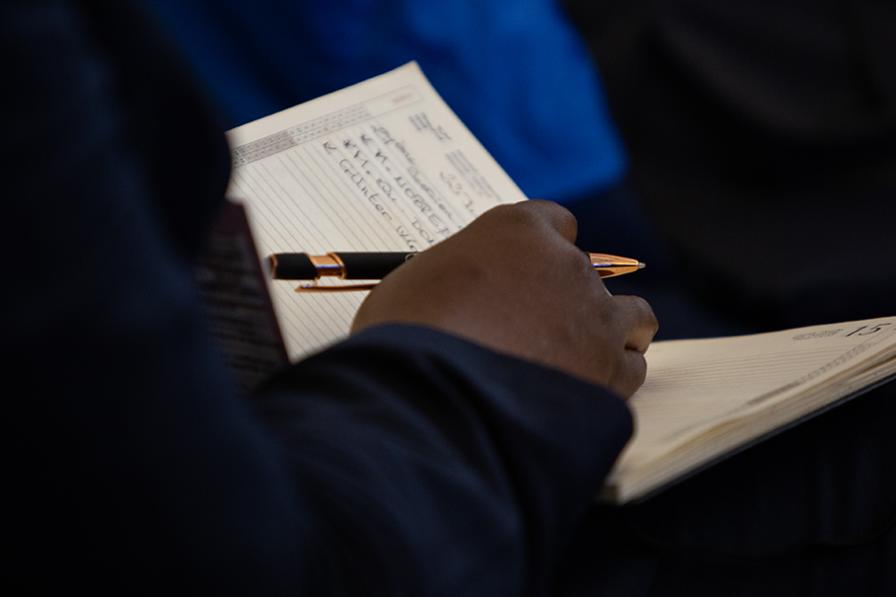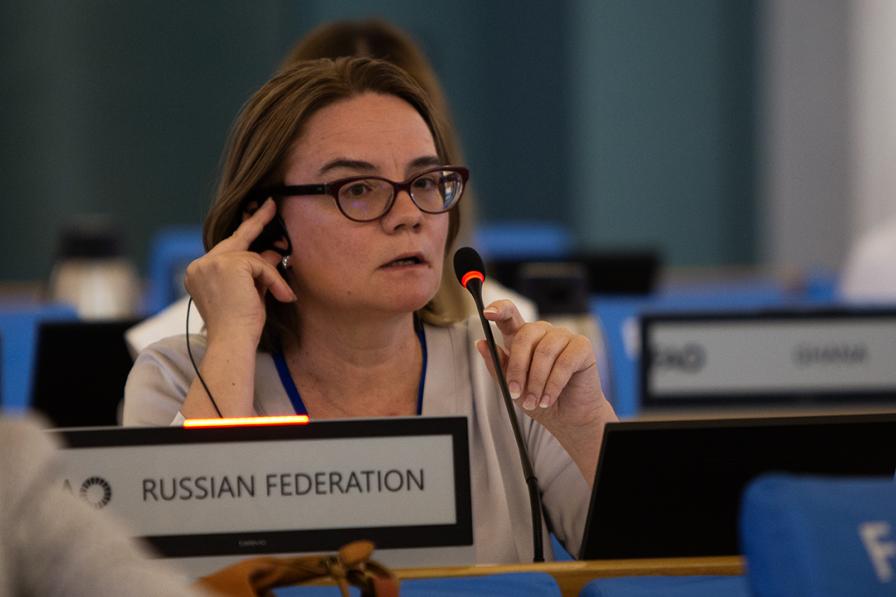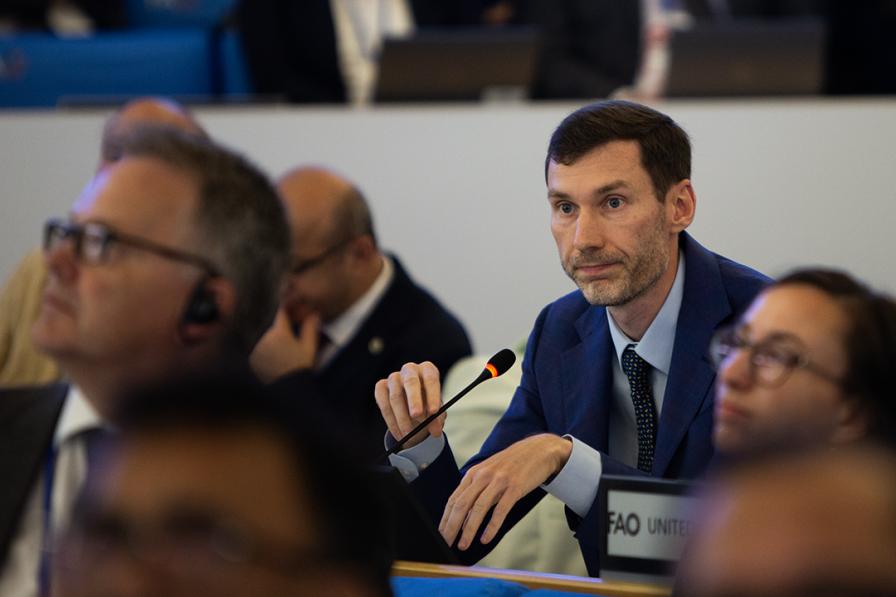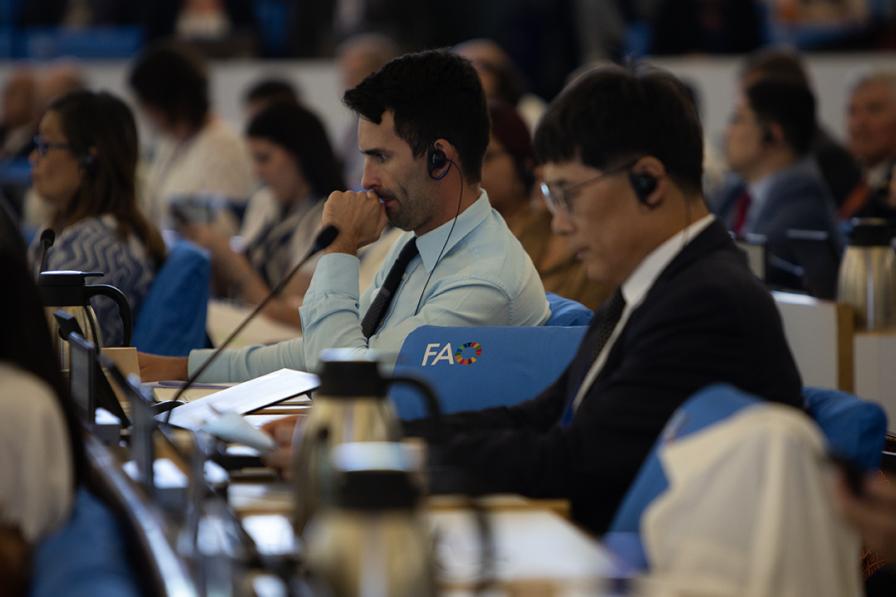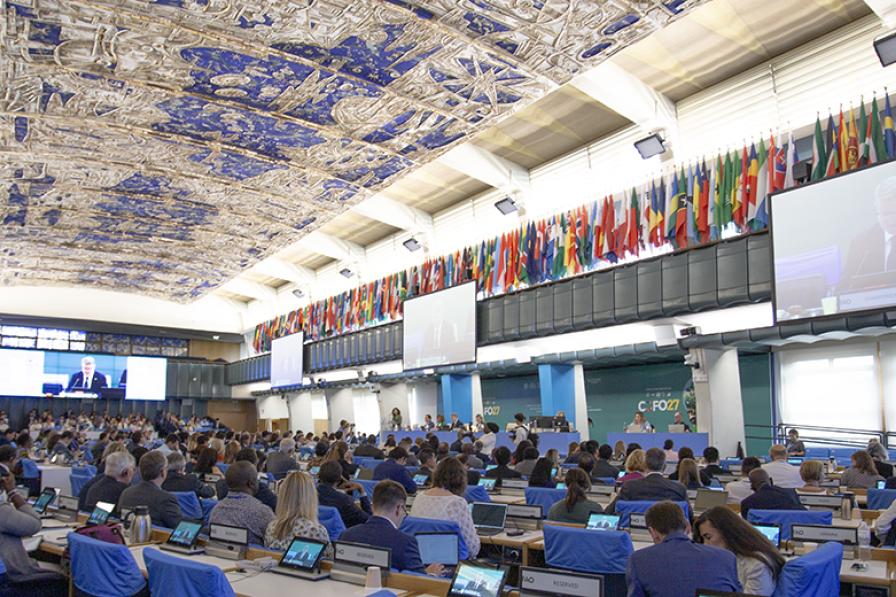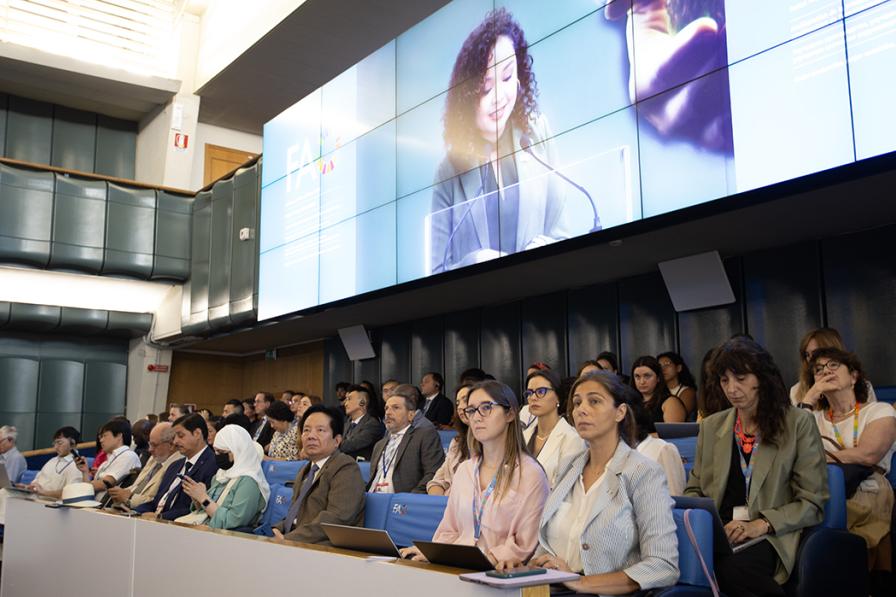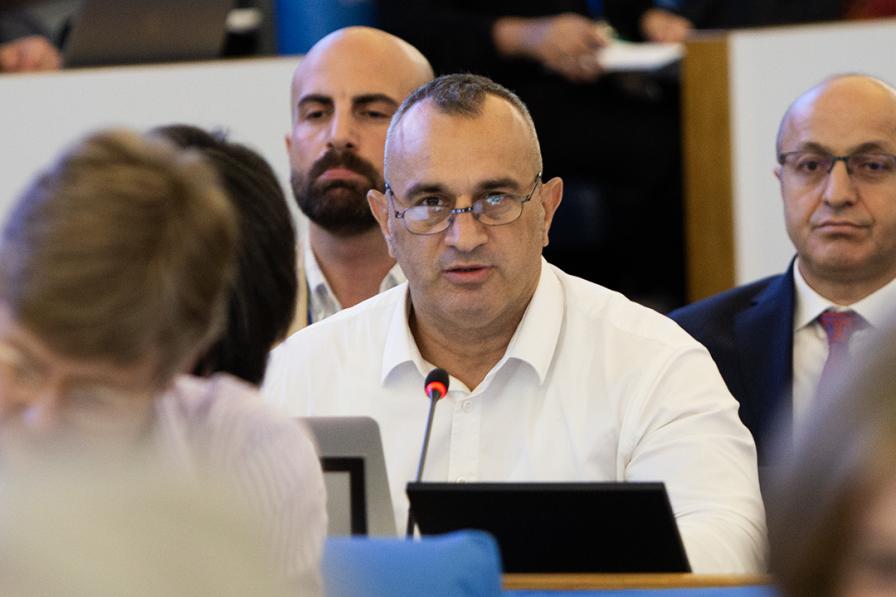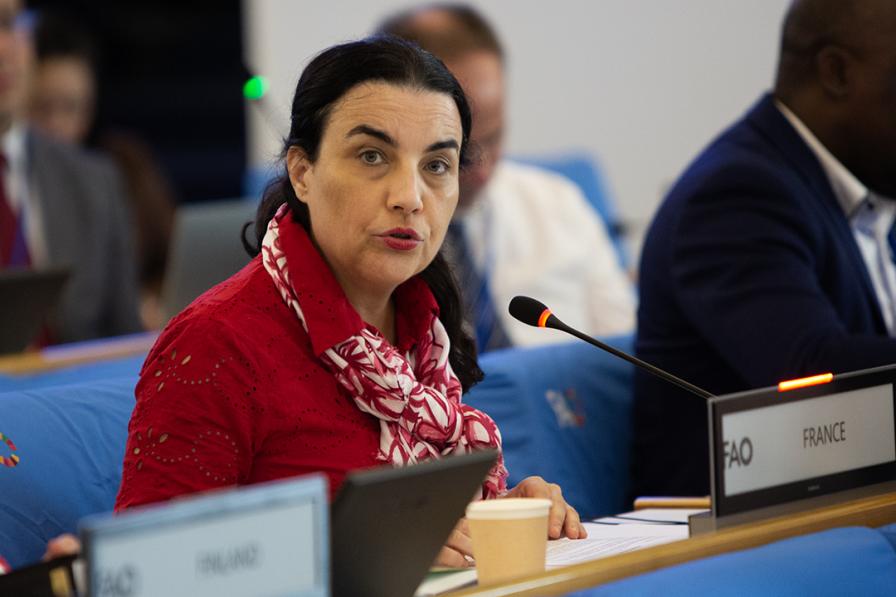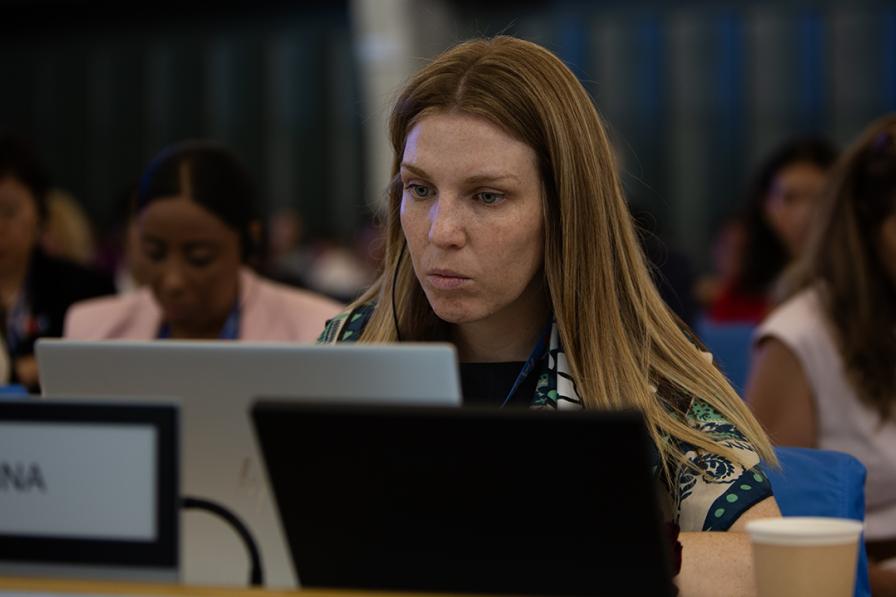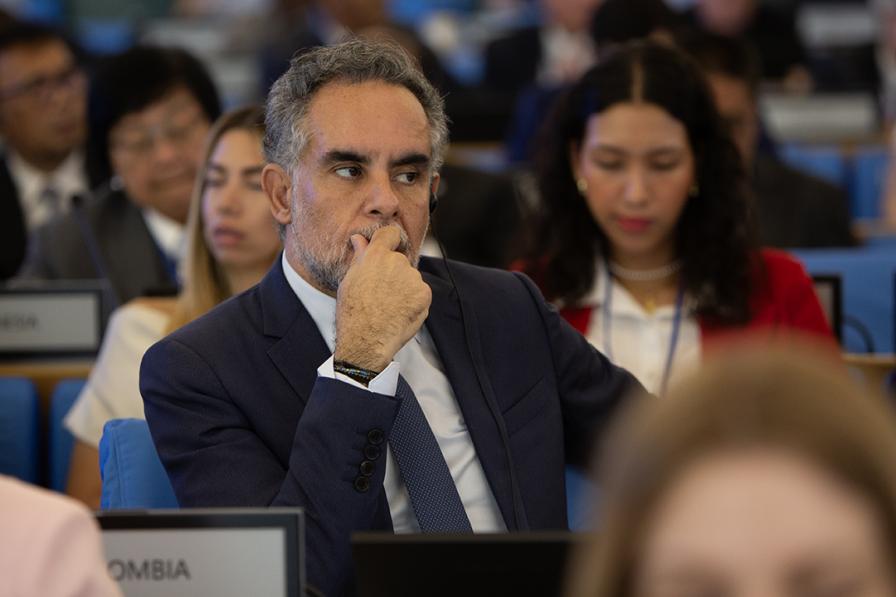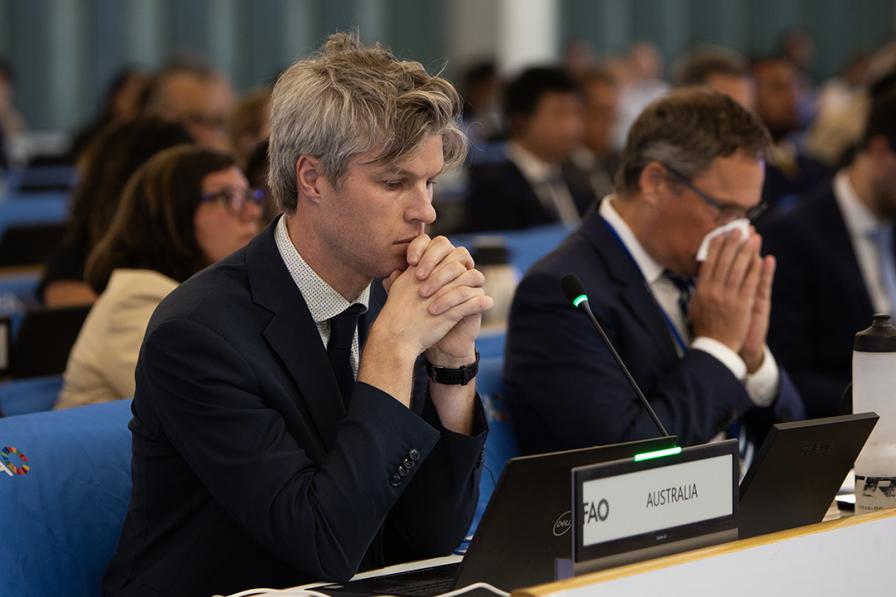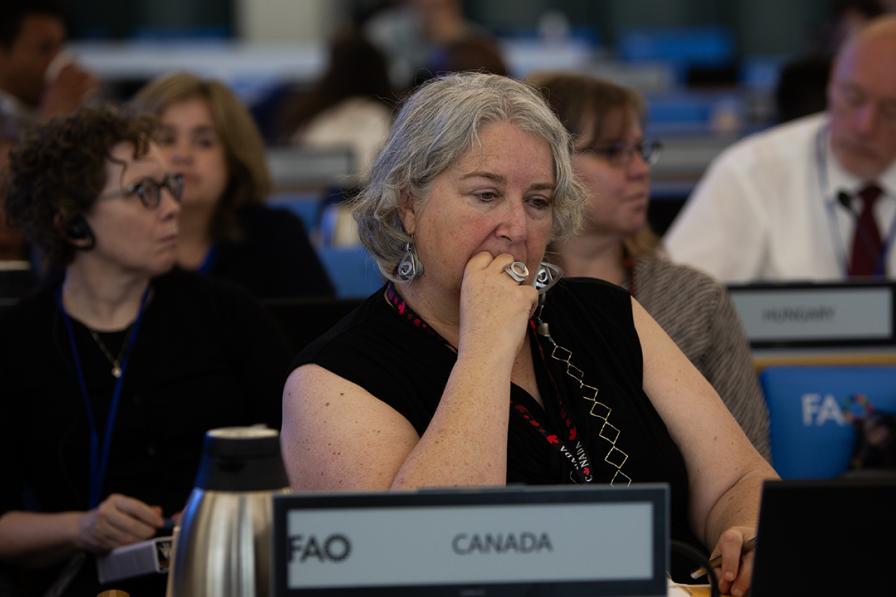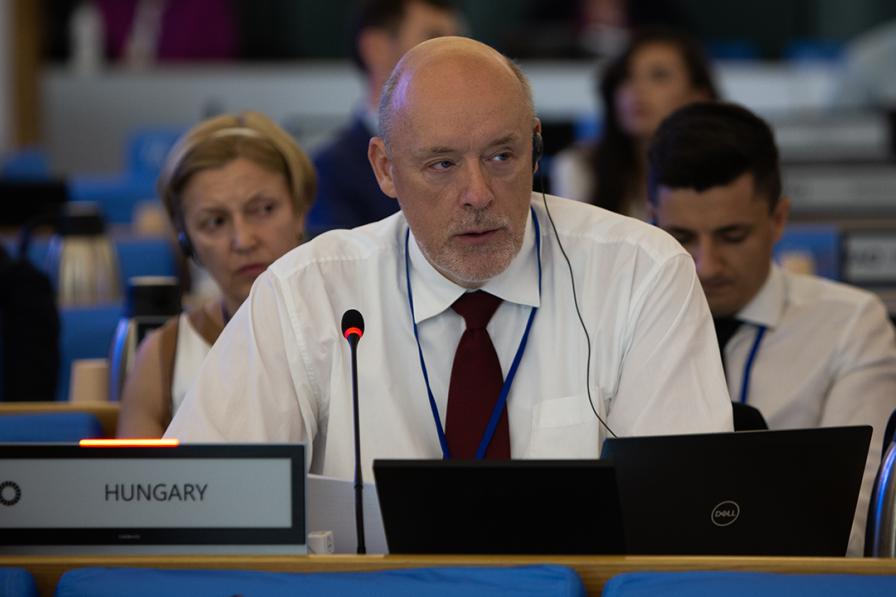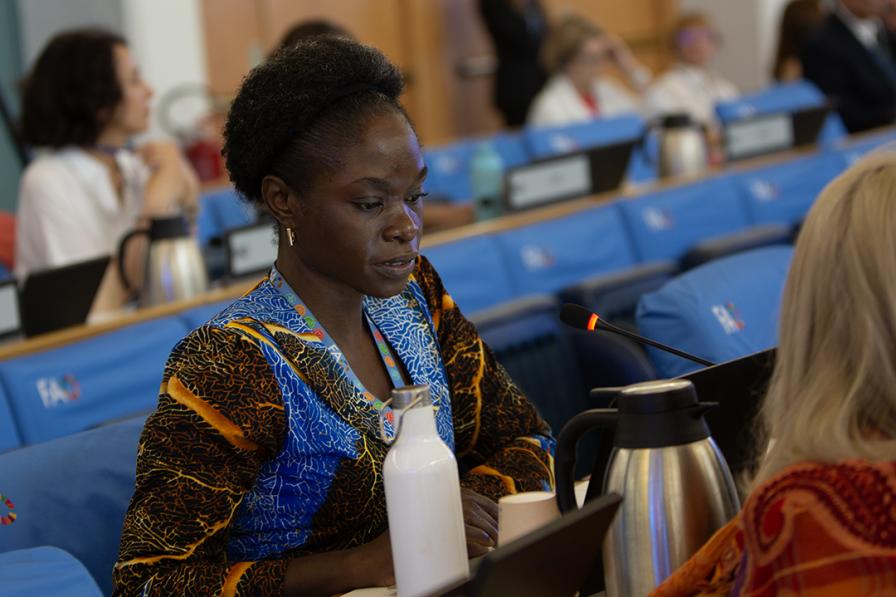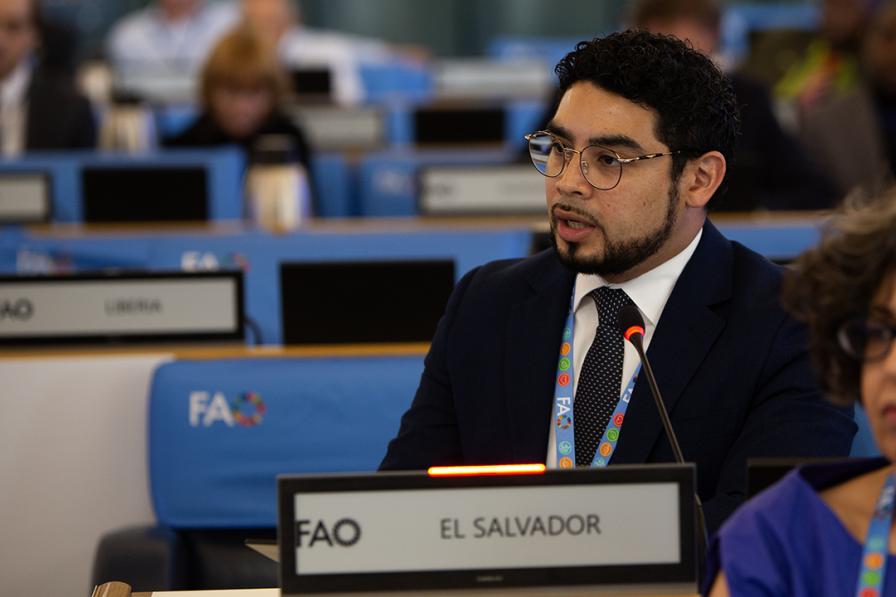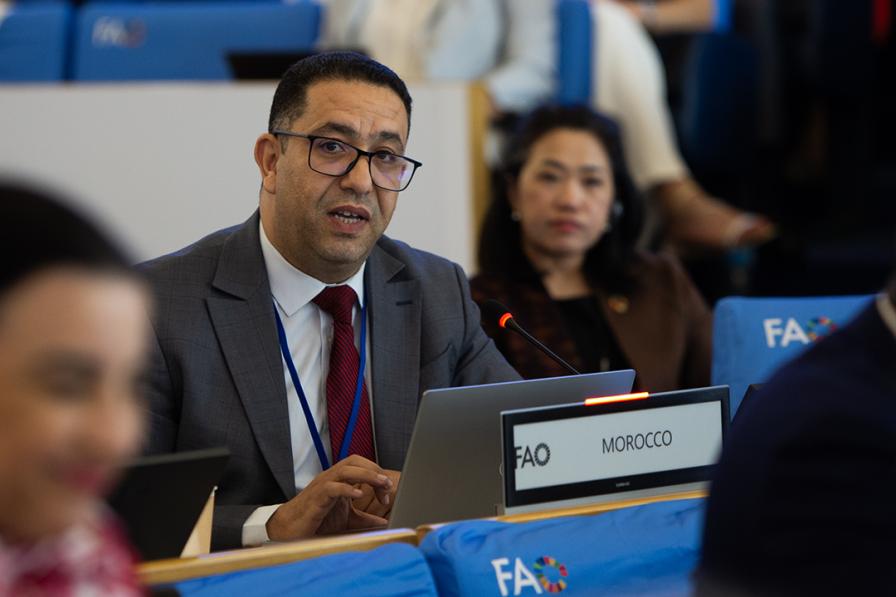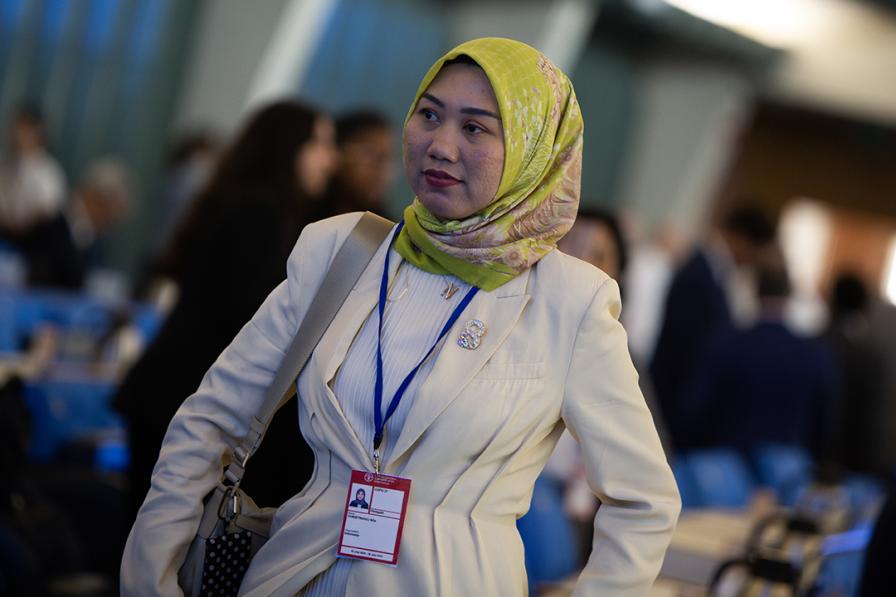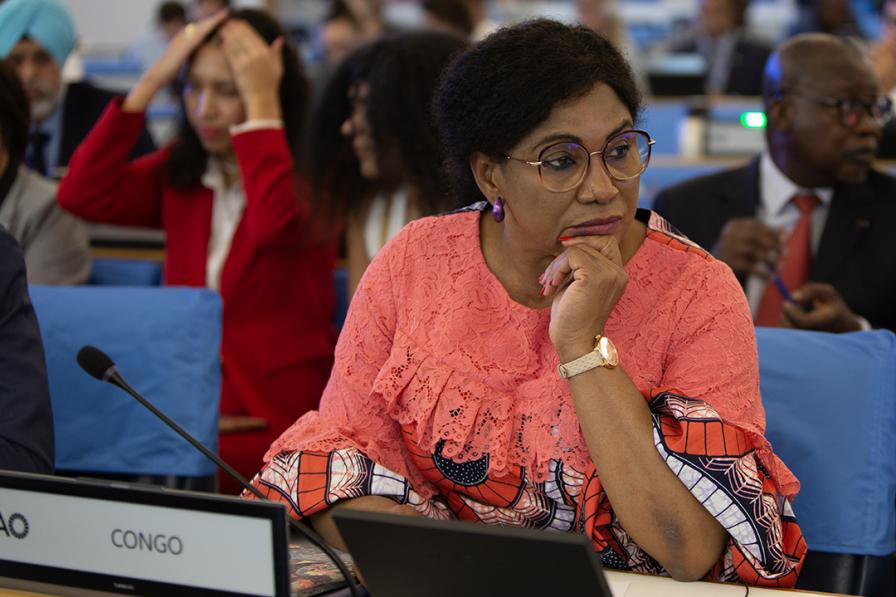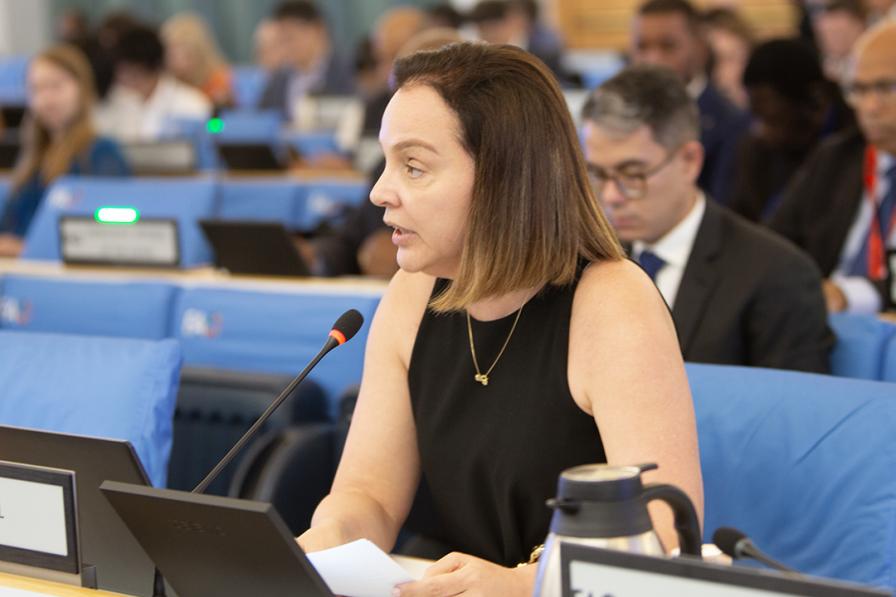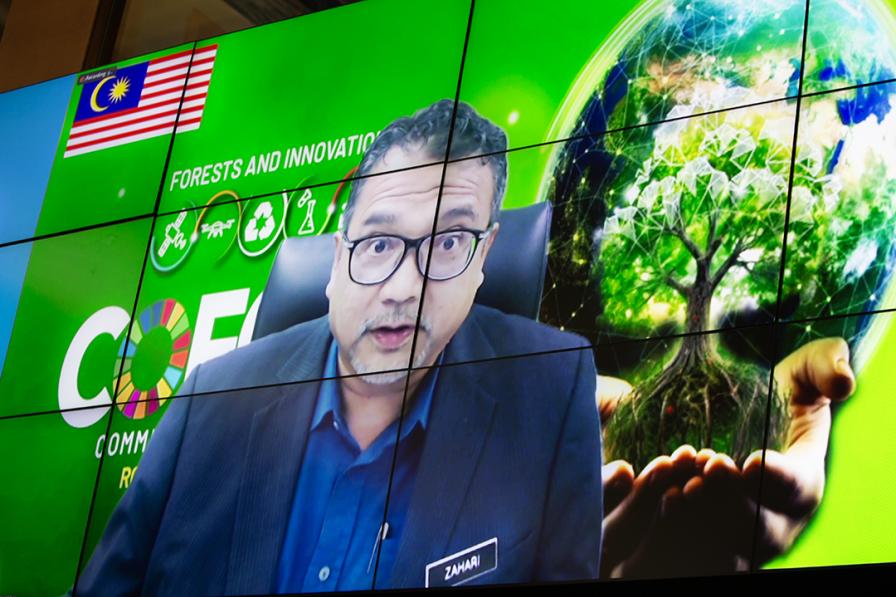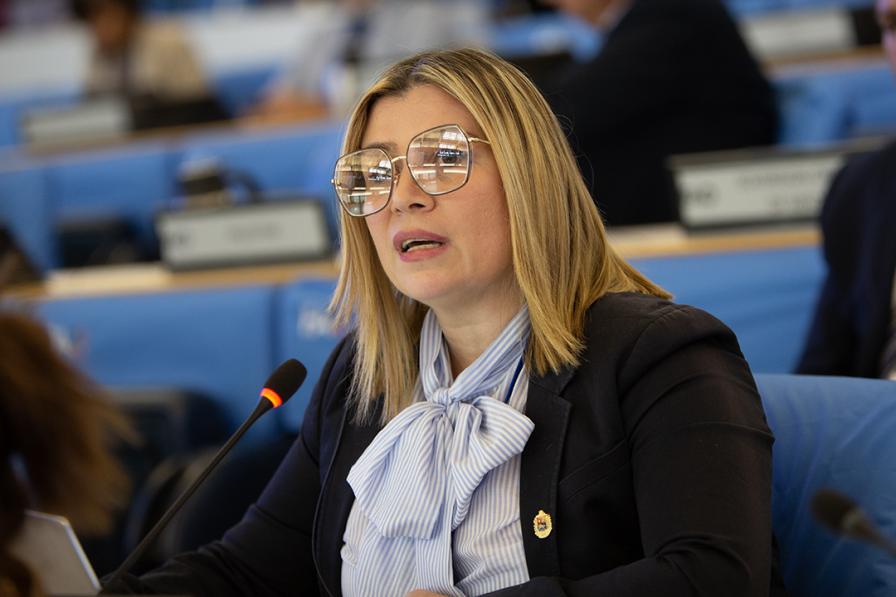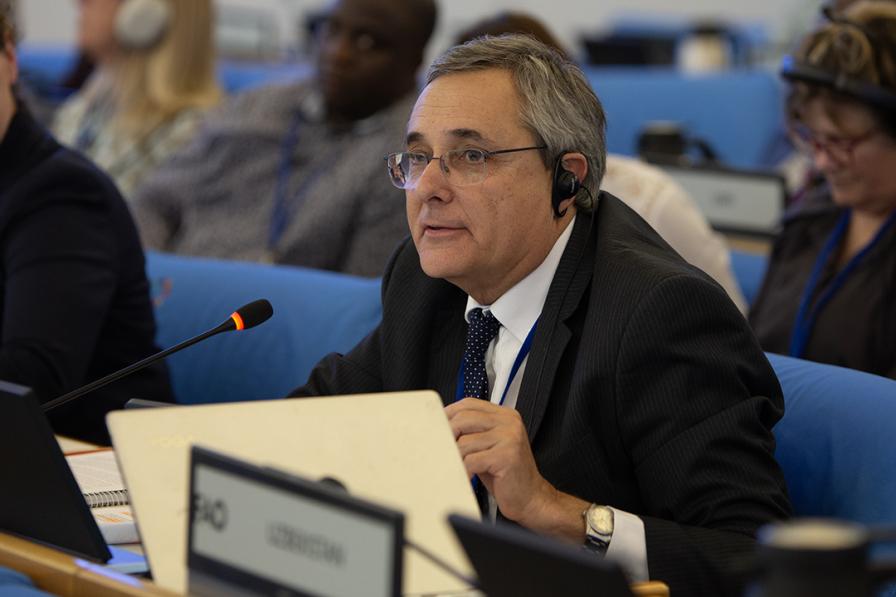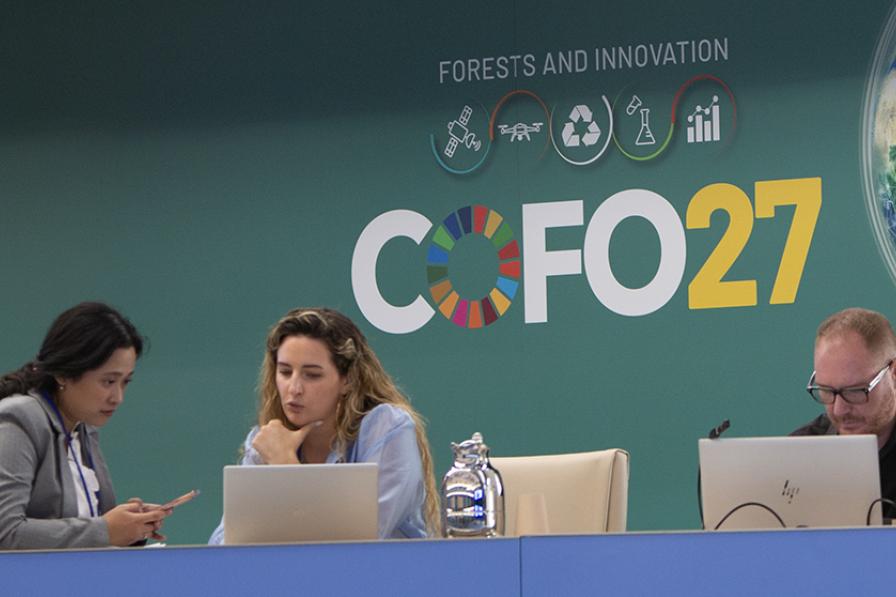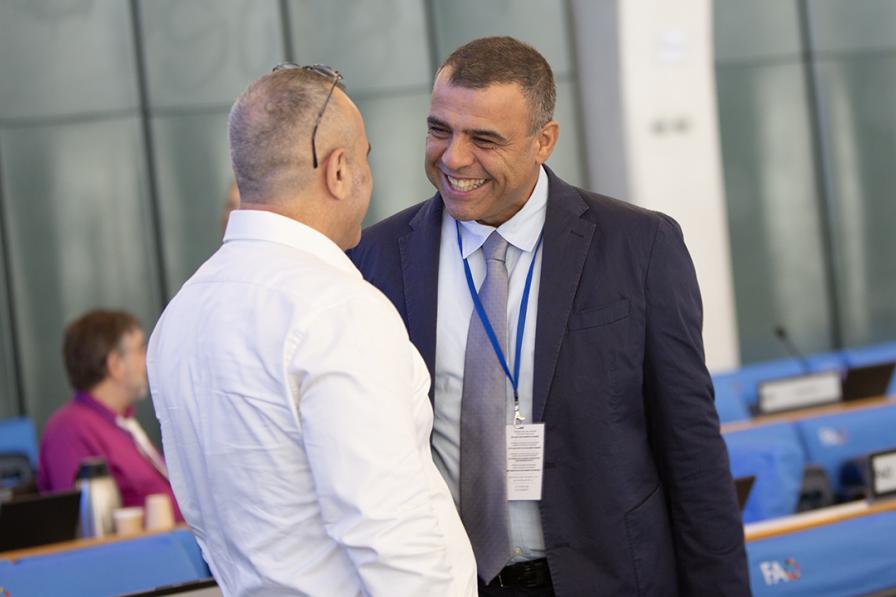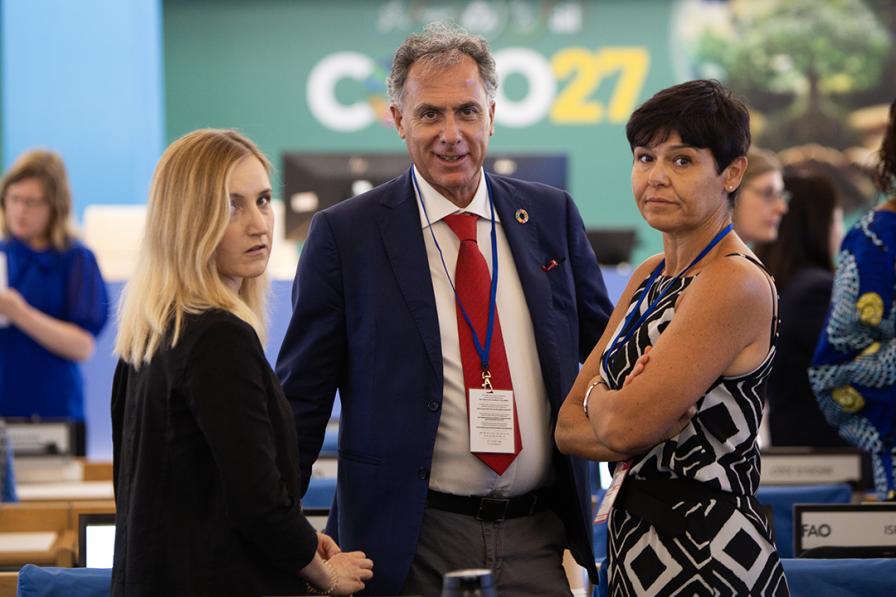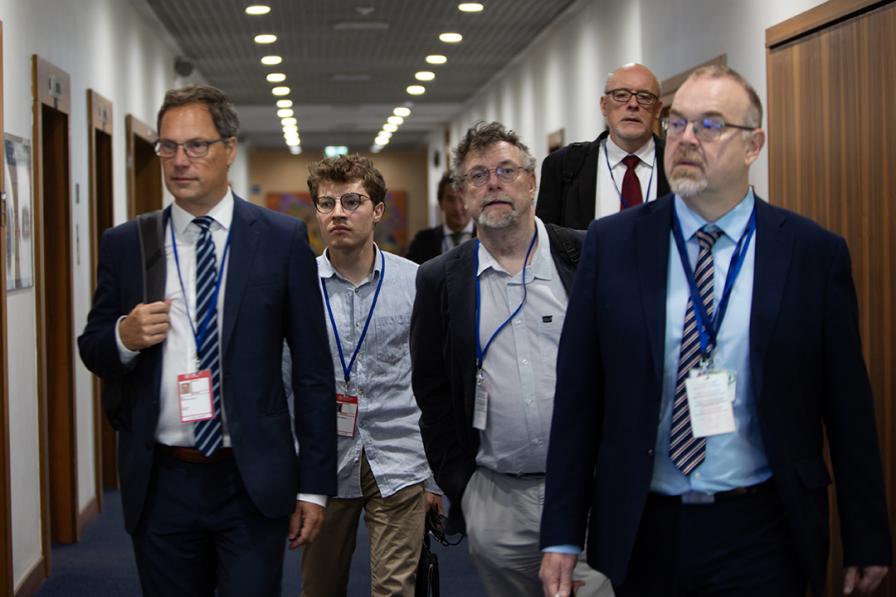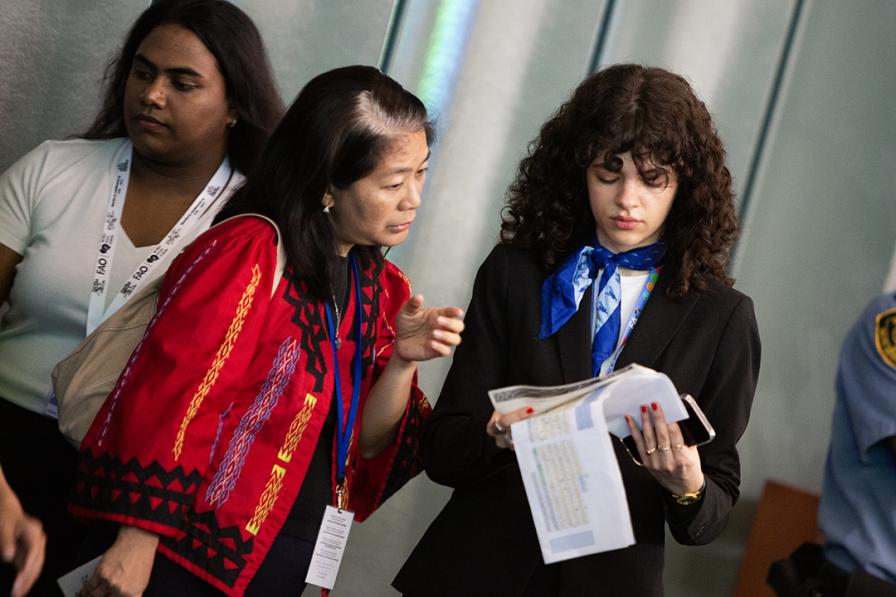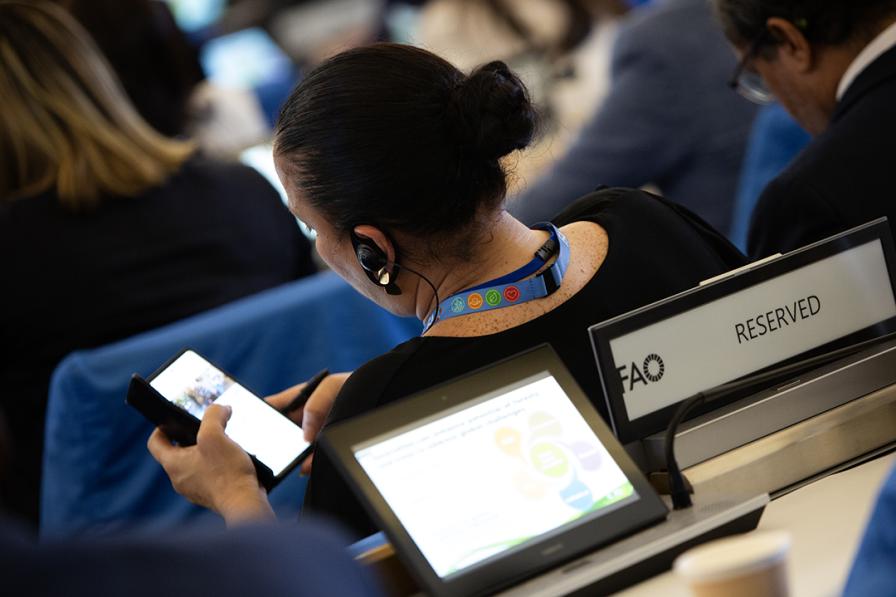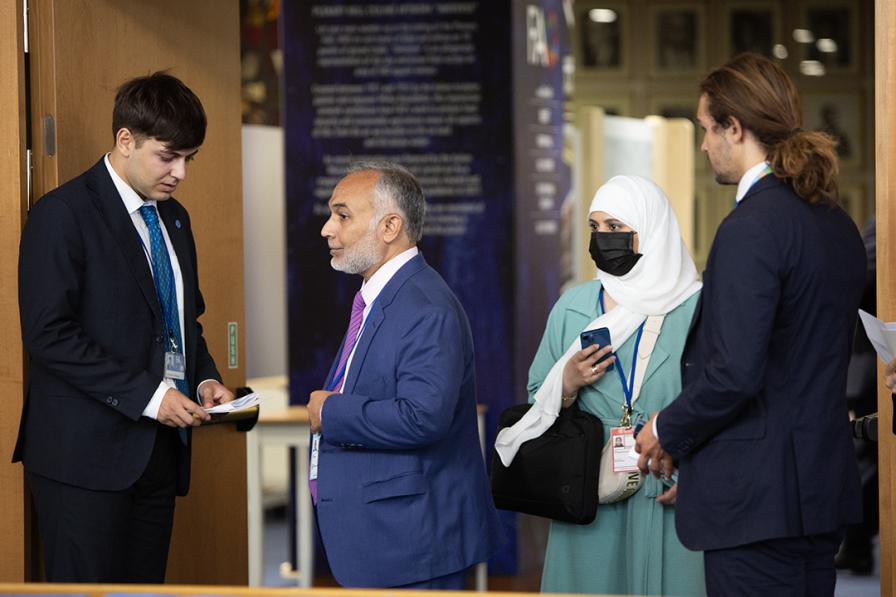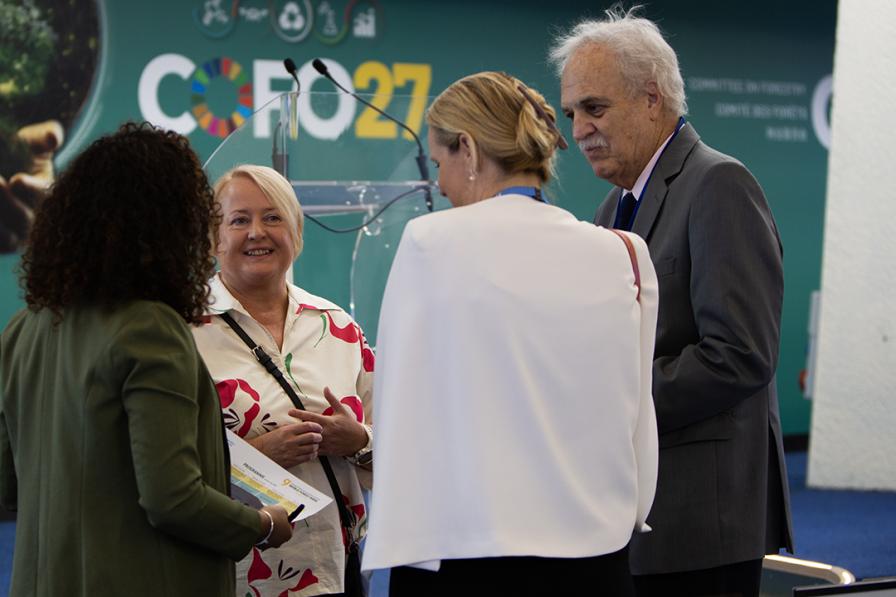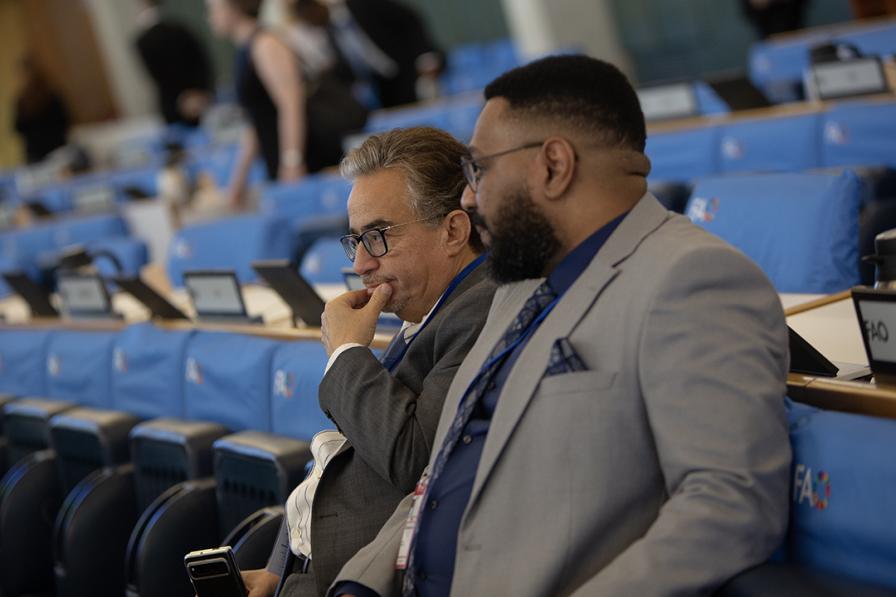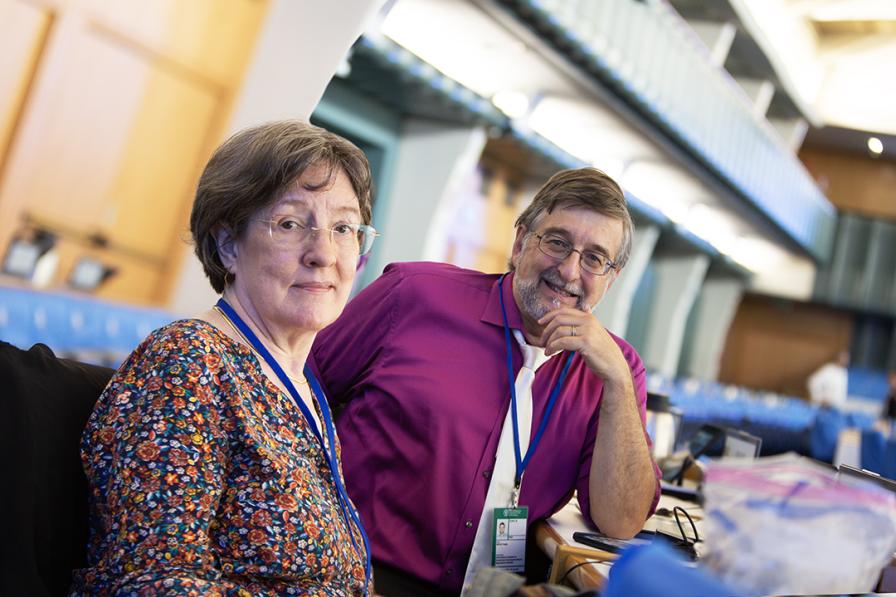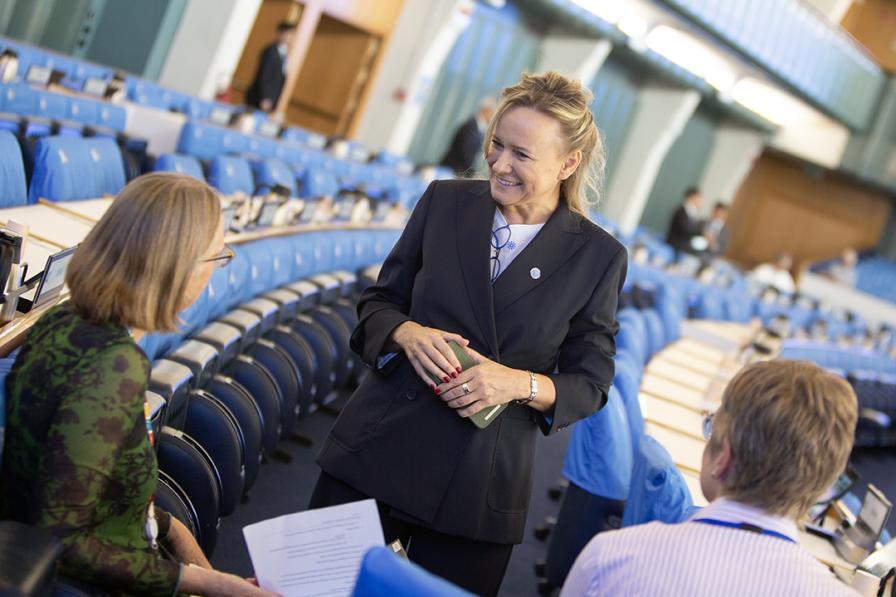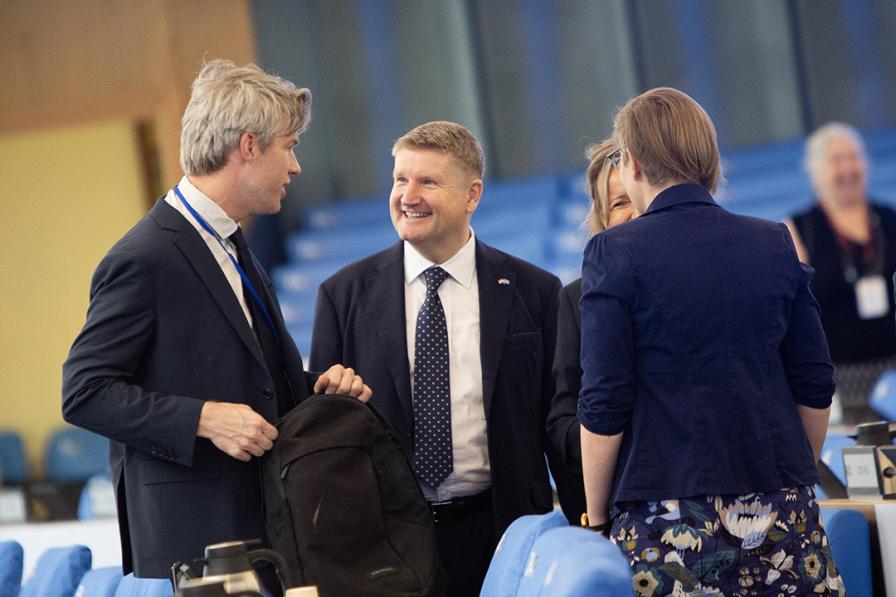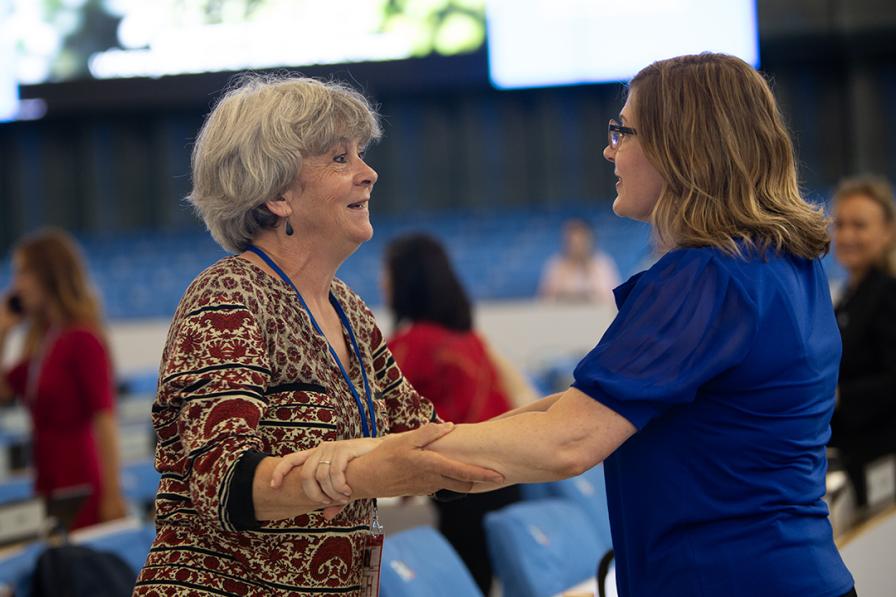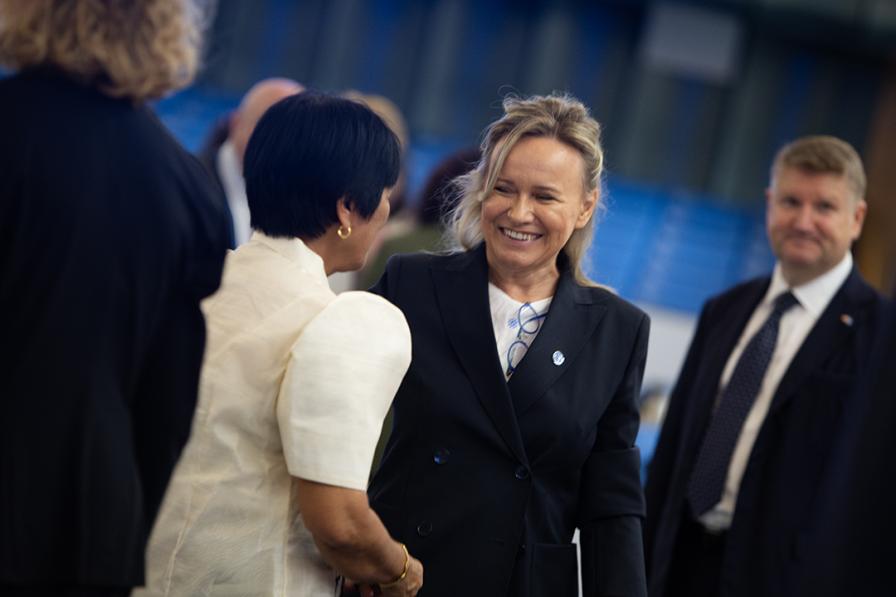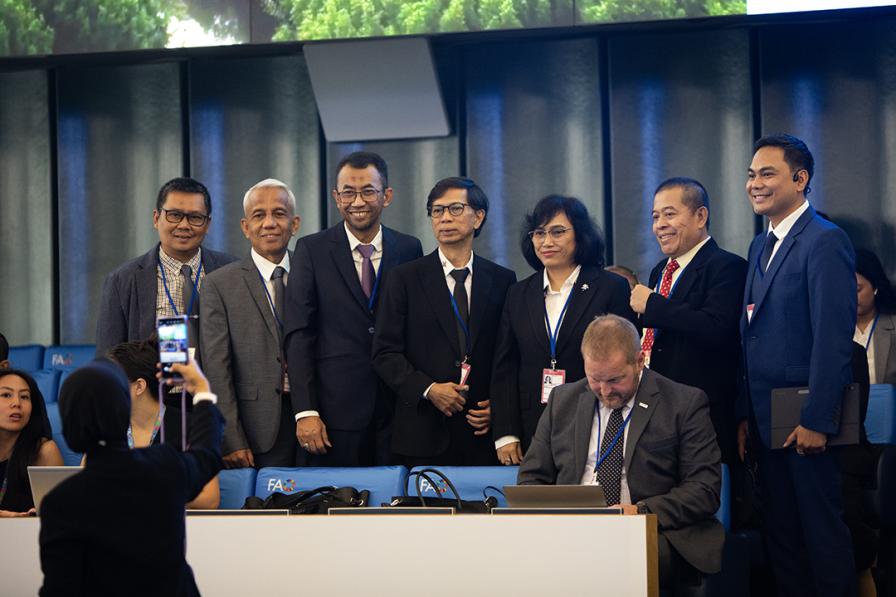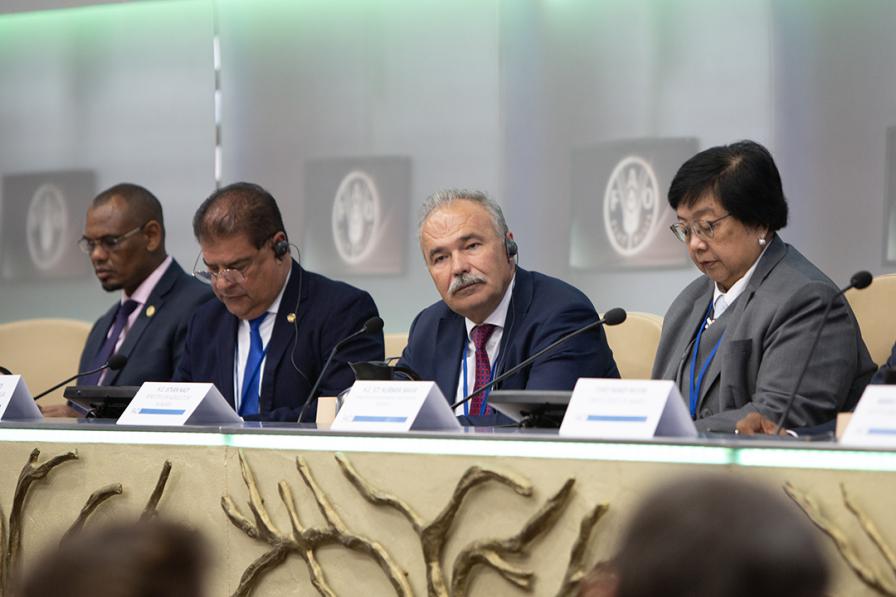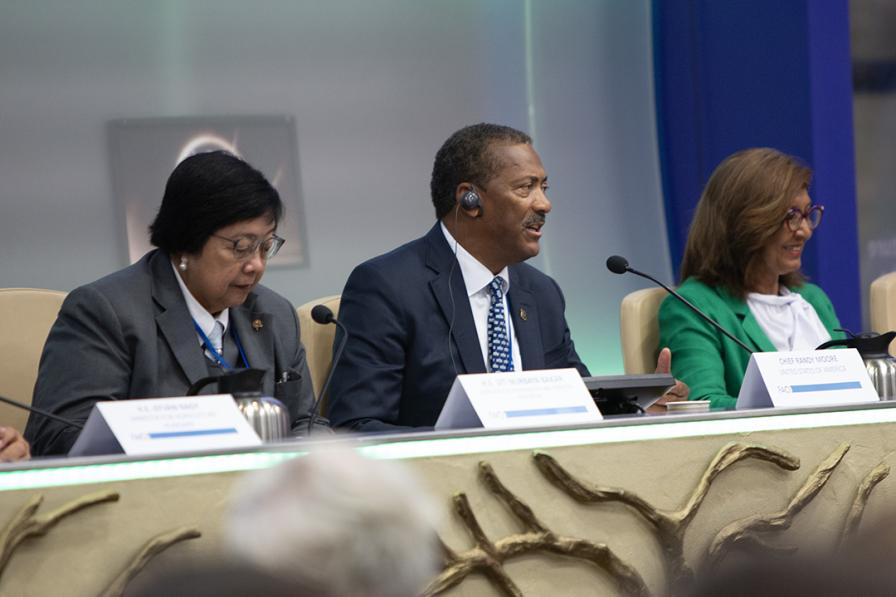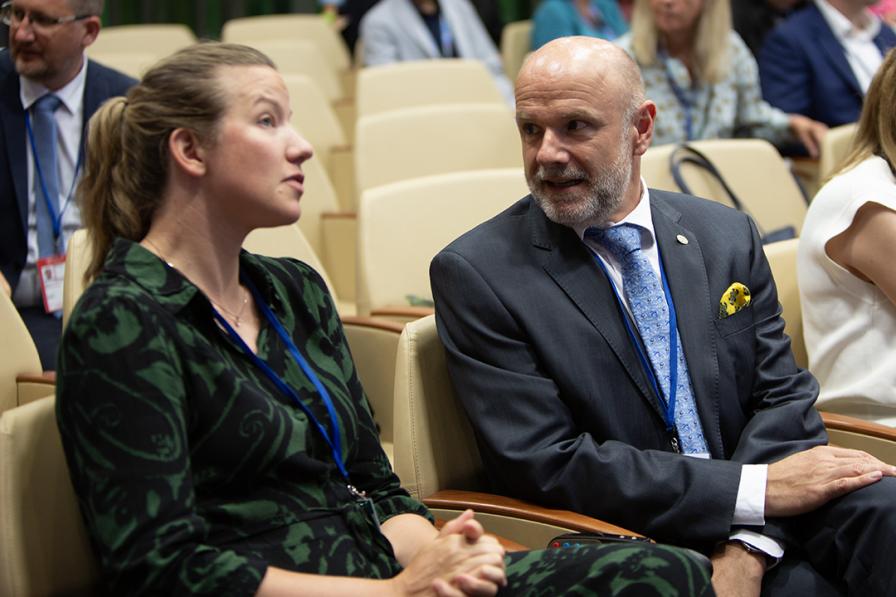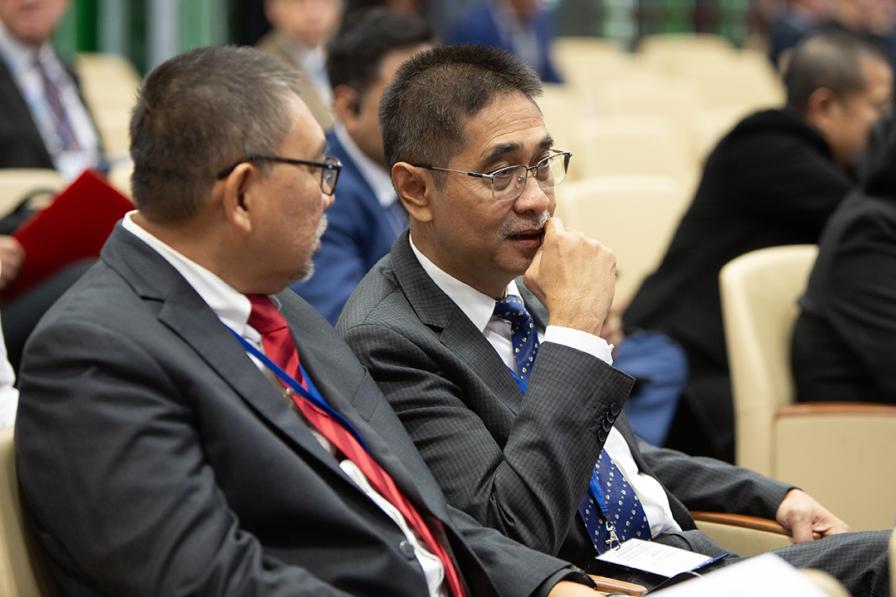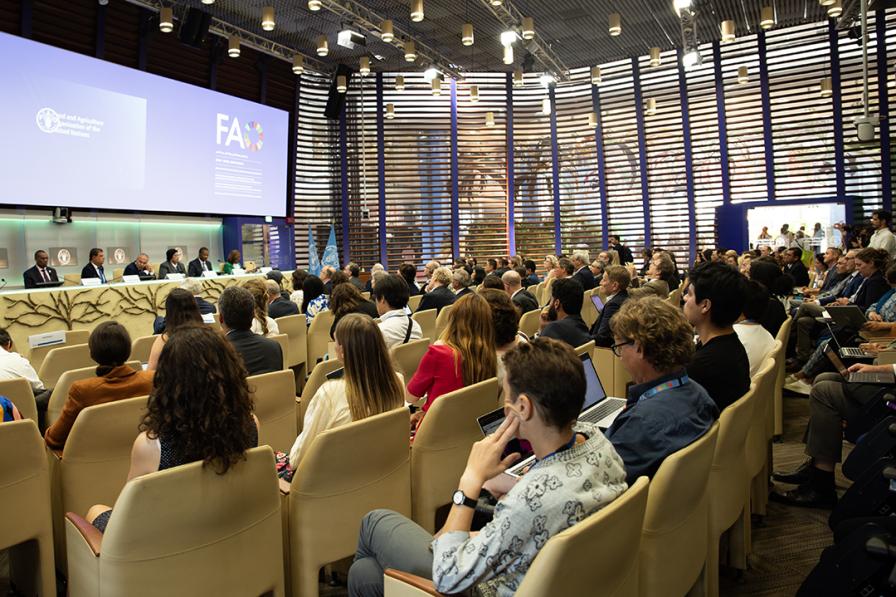Forests are absolutely crucial for the wellbeing of people and planet. Yet we are losing around 10 million hectares annually, with remaining forests facing a multitude of threats ranging from forest fires to pests, illegal logging and ecosystem degradation. In setting the scene for the week ahead, Chair Günter Walkner’s opening of the 27th session of the Committee on Forestry (COFO 27) of the Food and Agriculture Organization of the UN (FAO) reminded delegates of what’s at stake, stressing the importance of overcoming these threats by transforming forest management and exploring innovative solutions.
FAO Director-General Qu Dongyu stressed that COFO 27 outcomes would support collective efforts to achieve the Global Forest Goals and the Sustainable Development Goals (SDGs) and transform agrifood systems while ensuring no one is left behind. Carlos Nobre from the University of São Paulo, Brazil, warned that Amazonia is reaching a tipping point, in which in a few decades it may switch from storing carbon to emitting it. Louise Mabulo from the Cacao Project in the Philippines showed that, while supporting food production and local livelihoods, sustainable cocoa agroforestry systems also helped addressed her country’s vulnerabilities to climate change and extreme weather events.
After this scene setting, the Committee began its substantive work with discussions of the FAO’s 2024 State of the World’s Forest report (SOFO 2024), which explores the transformative power of forest-related innovations. The key findings of the report show record global wood production alongside some significant reductions in deforestation rates. Yet forests are experiencing increasing climate-related vulnerabilities, and we are still losing global forest cover at an alarming rate. Considering that global wood production is projected to increase significantly - in some sectors by as much as 49% - by 2050, one delegate observed that “we need to make more with less.”
In ensuing discussions, several delegates described their country’s or region’s efforts in developing and implementing forest-related innovations, ranging from using artificial intelligence (AI), remote sensing, and drones, to incentivizing communities to conserve their forests. Several countries stressed the significant threats facing their forest resources due to impacts of climate change. One delegate urged members to consider the importance of going beyond technological innovations alone. With regard to the bioeconomy, one regional group underscored the importance of taking into account the diversity of worldviews and respecting the traditional knowledge of Indigenous Peoples and local communities.
By the evening session, delegates fell into a pattern of back and forth proposals in negotiating text on COFO recommendations regarding the SOFO, with key issues including:
- what is meant by “responsible,” “sustainable” and “forest-related” innovations;
- whether and how to refer to national context, capacities, and priorities; and
- how best to add references to FAO facilitation of technology transfer and mobilization of financial resources and investments.
Delegates also discussed text proposed by Ukraine mentioning the impact of armed conflicts on forests, with India preferring prior agreed wording. As agreement was not reached, the paragraph was left for informal compromises to be sought later. Cameroon also proposed an additional paragraph pertaining to FAO’s support to Members for increasing forest sector innovation capabilities, which was agreed.
With an hour remaining, participants moved onto the agenda item on Scaling up Actions on Agriculture and Forestry Linkages. Delegates first heard from Julie Emond, the current Chair of the FAO Committee on Agriculture (COAG), who stressed the importance of cross-sectoral and cross-committee collaboration in order to address synergies. Tiina Vähänen, Deputy Director of the Forestry Division, FAO, introduced the agenda item. In ensuing discussions, Members spoke of their efforts to scale up agroforestry and expressed support for FAO’s work in this area.
Over lunch, a World Forestry Week high-level side event featured a panel on "Catalyzing innovation to accelerate the contributions of forests and forest products to the 2030 Agenda and beyond." Chaired by Randy Moore, head of the US Forest Service, the panel featured ministers and other national high-level officials, along with FAO Deputy Director Maria Helena Semedo. They discussed insights and recommendations to catalyze enabling actions that promote forest conservation and restoration while underscoring the potential of sustainable forest use in shaping the world’s societies towards a more sustainable future.
All ENB photos are free to use with attribution. For this event, please use: Photo by IISD/ENB | Angeles Estrada Vigil
To receive free coverage of global environmental events delivered to your inbox, subscribe to the ENB Update newsletter.
